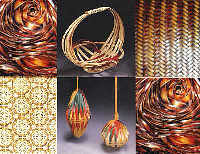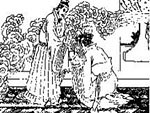| Home > Living in China > Traditional Chinese Medicine |
Application of Animal Products in TCM
 |
|
Dried seahorses |
Medicinal use is having a major impact on the populations of seahorses, which are considered a fundamental ingredient, and used to treat a variety of disorders, including asthma, arteriosclerosis, incontinence, impotence, thyroid disorders, skin ailments, broken bones, heart disease, as well as to facilitate childbirth and even as an aphrodisiac.
Shark fin soup is traditionally regarded as beneficial for health in East Asia, and its status as an "elite" dish has led to huge demand with the increase of affluence in China, but it is surely having a devastating effect on shark populations.
A few traditional Chinese medicinal solutions still use bear bile (xíong dǎn). The bears are often fitted with a sort of permanent catheter, which may have been thought to be more humane than killing the bears. The treatment itself and especially the extraction of the bile is very painful for bears, and causes damage to their stomach and intestines, often resulting in their eventual death. However, due to international attention on the issues surrounding its harvesting, bile is now rarely used by practitioners outside of China; gallbladders from butchered cattle (cow bile/niú dǎn) are recommended as a substitute for this ingredient.
Source: Wikipedia
Edit by Study-in-china.org
Art
 more
moreA Basic Knowledge about China
Pottery warriors Pottery may be the oldest

China’s Four Treasures of Study

China Crafts Diverse in Styles
Chinese bamboo craftsAs a gem of Chinese art and

Customs
 more
more



 print
print  email
email  Favorite
Favorite  Transtlate
Transtlate 
